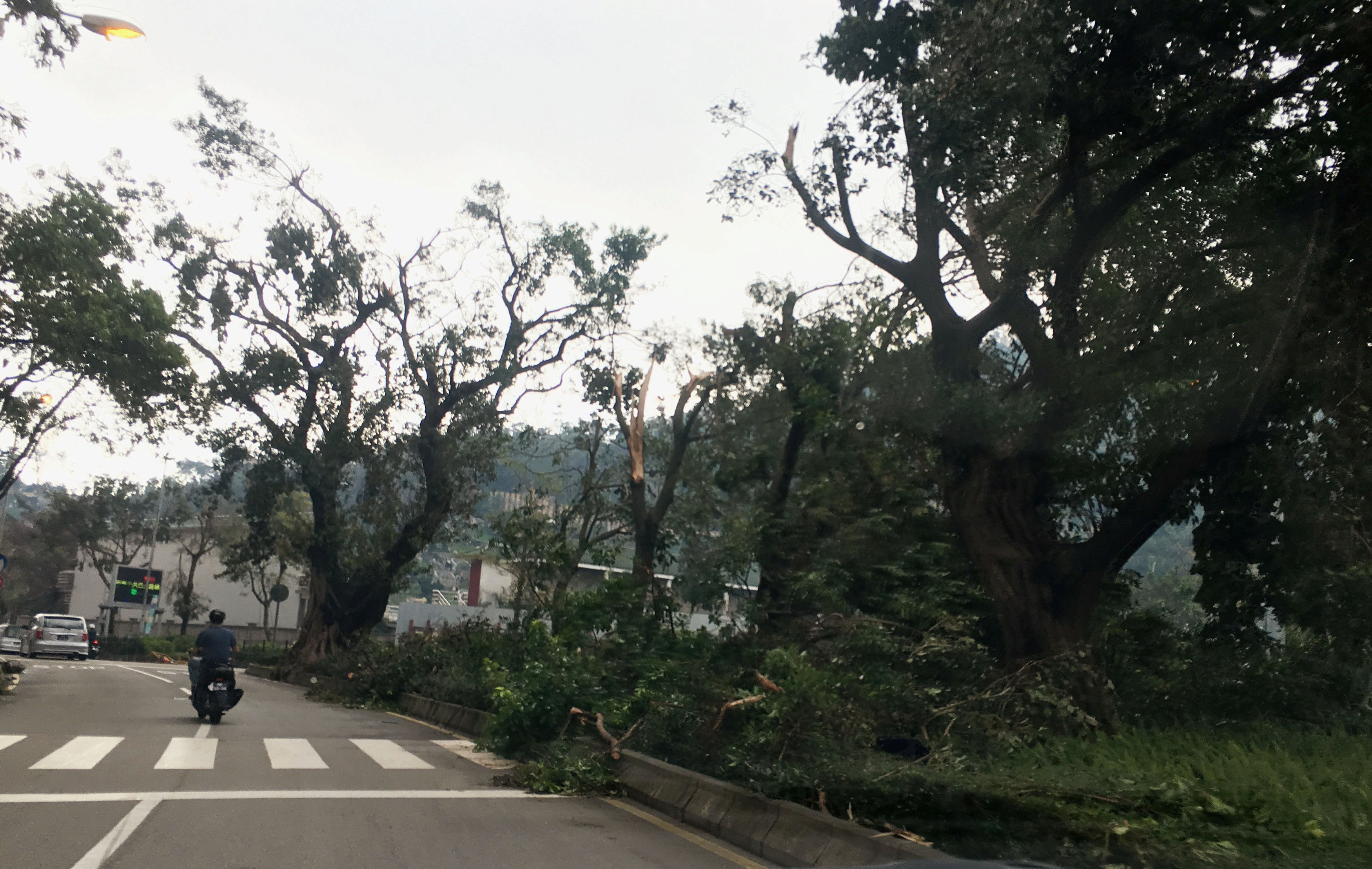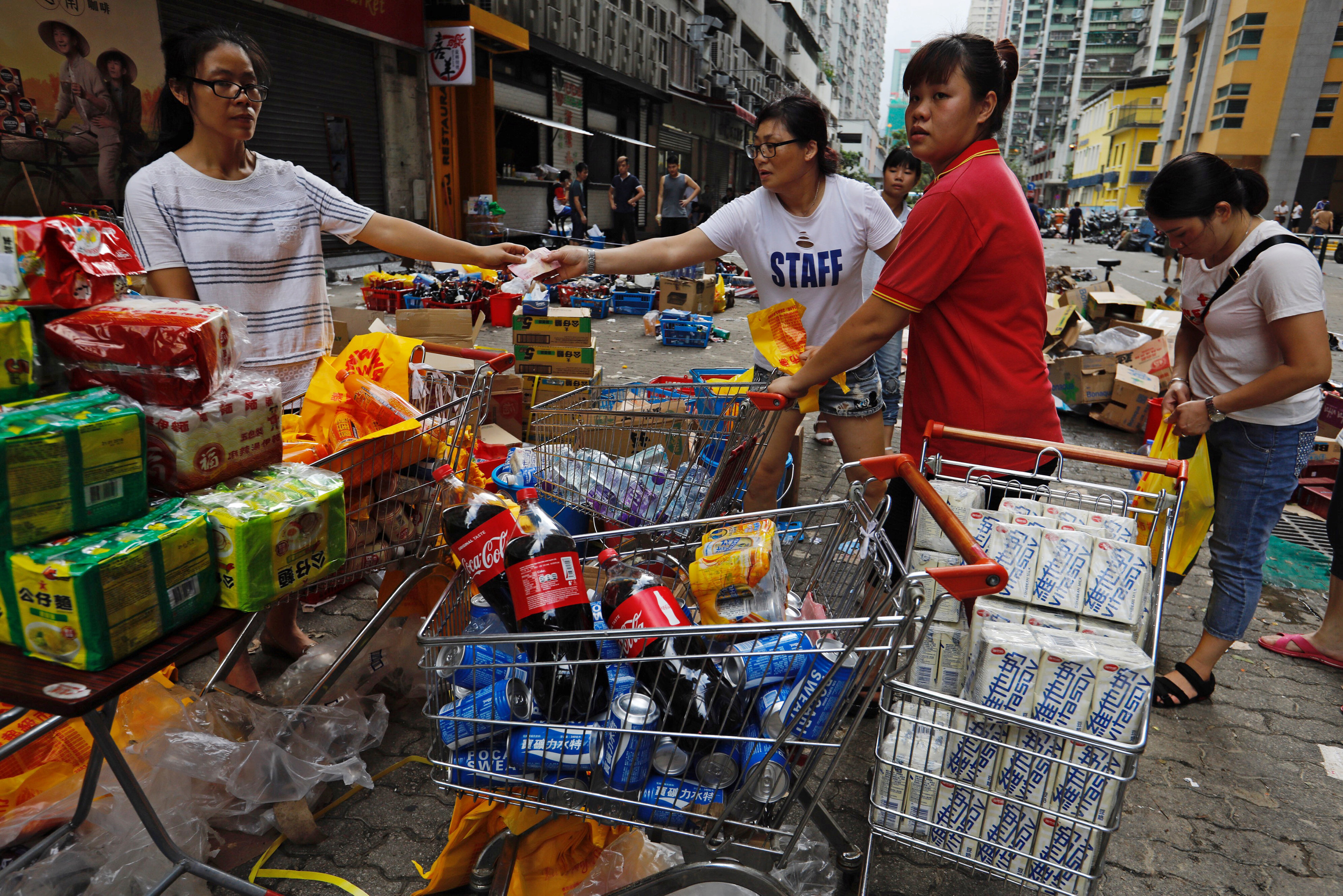
By Farah Master and Ryan Woo
HONG KONG/BEIJING (Reuters) – Hong Kong reported its first coronavirus death on Tuesday, the second outside mainland China from a fast-spreading outbreak that has killed 427 people and threatened the global economy.
China’s markets steadied after losing $400 billion in stock values the previous day, and global markets also recovered from a sell-off last week. But bad news kept coming.
The Chinese-ruled gambling hub of Macau asked casino operators to close for two weeks to help curb the virus.
And in the latest major corporate hit, Hyundai Motor said it was to gradually suspend production at South Korean factories because of supply chain disruptions.
Hong Kong’s first fatality was a 39-year-old man with an underlying illness who had visited China’s Wuhan city, the epicentre of the outbreak, hospital staff said.
Chinese authorities, meanwhile, reported a record daily jump in deaths of 64 to 425. The only other death outside mainland China was a man who died in the Philippines last week after visiting Wuhan, the virtually quarantined city at the epicentre of the outbreak.
Total infections in mainland China rose to 20,438, and there have been nearly 200 cases elsewhere across 24 countries and China’s special administrative regions Hong Kong and Macau.
Thailand’s tally of infections jumped to 25, the highest outside China, while Singapore’s rose to 24, four of those from local contagion as opposed to visitors from China.
New cases were reported in the United States, including a patient in California infected via someone in the same household who had been infected in China.
The World Health Organization (WHO) has declared the flu-like virus a global emergency and experts say much is still unknown, including its mortality rate and transmission routes.
FOREIGN FEARS
Such uncertainties have spurred strong measures by some countries – offending Beijing’s communist government which has called for calm, fact-based responses instead of scaremongering.
The deluge of misinformation on social media – from a recommendation to eat more onions to a warning of spread via a video game – has led Asian governments to hit back with arrests, fines and fake news laws, alarming free speech advocates.
At least 16 people have been arrested over coronavirus posts on social media in Malaysia, India, Thailand, Indonesia and Hong Kong.
Australia sent hundreds of evacuees from Wuhan to an island in the Indian Ocean, while Japan ordered the quarantine of a cruise ship with more than 3,000 aboard after a Hong Kong man who sailed on it last month tested positive.
Thousands of medical workers in Hong Kong, which had seen months of anti-China political protests, held a second day of strikes to press for complete closure of borders with the mainland after three checkpoints were left open.
“We’re not threatening the government, we just want to prevent the outbreak,” said Cheng, 26, a nurse on strike.
The Asian financial centre has confirmed 17 cases of the virus and its public hospital network is struggling to cope with a deluge of patients and containment measures.
Hong Kong was badly hit by Severe Acute Respiratory Syndrome (SARS), another coronavirus that emerged from China in 2002 to kill almost 800 people worldwide and cost the global economy an estimated $33 billion.
WHO figures show SARS killed 299 people in Hong Kong then.
Chinese data suggest the new virus, while much more contagious, is significantly less lethal, although such numbers can evolve rapidly.
In Wuhan, authorities started converting a gymnasium, exhibition centre and cultural complex into makeshift hospitals with more than 3,400 beds for patients with mild infections, the official Changjiang Daily said.
U.S.-CHINA FRICTIONS
Raising the prospect of another major spat – just as trade frictions were easing – Beijing on Monday accused the United States of spreading panic after it announced plans to block nearly all recent foreign visitors to China.
A handful of other nations have done the same.
With the world’s second biggest economy facing increasing international isolation and disruption, some economists predict world output will shrink by 0.2 to 0.3 percentage points.
Many airlines have stopped flights to parts of China, with Japan’s biggest carrier, ANA Holdings <9202.T>, the latest to announce cuts, saying it would slash the number of flights to Beijing by two-thirds for at least seven weeks.
Hong Kong’s Cathay Pacific Airways Ltd <0293.HK> plans to cut 30% of global capacity over the short term, including 90% to mainland China.
Data from aviation statistics provider VariFlight showed 41 Chinese carriers cancelled nearly two-thirds of 16,623 planned flights for Tuesday as of 10:30 a.m. Beijing time (0230 GMT).
In addition, 10 regional airlines from Hong Kong and Taiwan had cancelled 162 flights, while 37 airlines from other countries cancelled 168 flights on the same day, it said.
each day since the start of February.
For a graphic comparing coronavirus outbreaks, see https://tmsnrt.rs/2GK6YVK.
(Reporting by Lusha Zhang and Ryan Woo in Beijing, Farah Master in Hong Kong, Cheng Leng and Winni Zhou in Shanghai, Roxanne Liu, Muyu Xu and Se Young Lee in Beijing, Brenda Goh and Zoey Zhang in Shanghai, Tom Westbrook in Singapore, Byron Kaye in Sydney, Matthew Tostevin in Bangkok, Linda Sieg, Sakura Murakami and Ami Miyazaki in Tokyo, John Geddie in Singapore, Kate Kelland in London, Stephanie Nebehay in Geneva, Ben Blanchard in Taipei; Writing by Robert Birsel and Andrew Cawthorne; Editing by Clarence; Fernandez and Alex Richardson)








